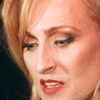
ULRIKE AUGA
“Working with specialists in observatory and image production contexts, and with the NASA Astrobiology and Society Focus Group will greatly enrich the study. My focus is on NASA space image production, which plays an outstanding role in the scientific and public perception of ‘life’ in the universe. To avoid diverse violent effects, I analyze the discursive power of space images and propose alternatives for NASA space image politics. I develop an epistemological framework for astrobiology and analyze the mechanisms of knowledge production and discourse on life in this discipline suggesting an astrobiology of “diffraction” and “deep ecology” as non-exclusive scientific knowledge production strategy.” --Ulrike Auga, 2015-2016 NASA/Templeton/Center of Theological Inquiry Religious Scholar
German theologian Ulrike Auga’s space images advisory role for NASA seems particularly suspect not just because it smacks of Leni Riefenstahl-style manipulation but because some weeks ago (February 8) Auga abruptly cancelled an interview with me about her work on the nearly $3M NASA/Templeton/Center of Theological Inquiry investigation (2015-2017) into how the religious community would respond to the discovery of life in outer space plus we have not seen any report in the US from Auga about her US publicly funded advisory activity for NASA.
Auga was a 2015-2016 NASA/Templeton/CTI religious scholar, one of two dozen funded by the project. Auga is currently a professor at the University of Vienna specializing in gender studies. She provides this perspective on space images translation on her 2016 Humboldt University, Berlin web page:
“Most of the images that shape our idea of space are in different ways ‘artificially’ created images. Astronomers ‘translate’ the data from the invisible data area into visible images. Beyond the technological demands, pictures are also edited to be more comprehensible aesthetically and more ‘attractive’ ethically. Some space image editors create a narrative story with space images suffused with a notion of progress that also reinscribes anthropomorphism and anthropocentrism. Some astrobiological discourse not only generates essentialized/ontologized categories of ‘Gender’, ‘Race’, ‘Nation’, ‘Class’, and ‘Religion’ but in a different move manifests the ‘(human) species’ as an exclusive category, while ‘othering’ potential life forms.
This seminar offers an outline of my postcolonial, postsecular Gender/Queer Theory in connection with Astrobiology, Epistemology, feminist Technoscience Critique, and Model Theory, and introduces Visual Archives, including NASA Deep Space Image collections. . . .”
Following are questions I planned to ask Ulrike Auga that went unanswered because she ducked the interview:
1. Why were you funded by NASA/Templeton via CTI on space image politics?
2. Isn’t this mind control? Why not give the public a true picture?
3. You indicate that you analyze space images and think of ways to avoid diverse violent effects from these images. How do you determine what’s violent?
4. Have you run focus groups as part of this project?
5. Did you canvas the religious community as to how it would respond to the discovery of extraterrestrial life?
6. Can you give me a specific example of what you did in advising NASA?
7. Have you similarly advised the European Space Agency?
8. What were the conditions attached to your NASA/Templeton/CTI grant? What was expected of you?
9.This project was publicly funded in the US. Where will you publish your findings so the American public can see them?
